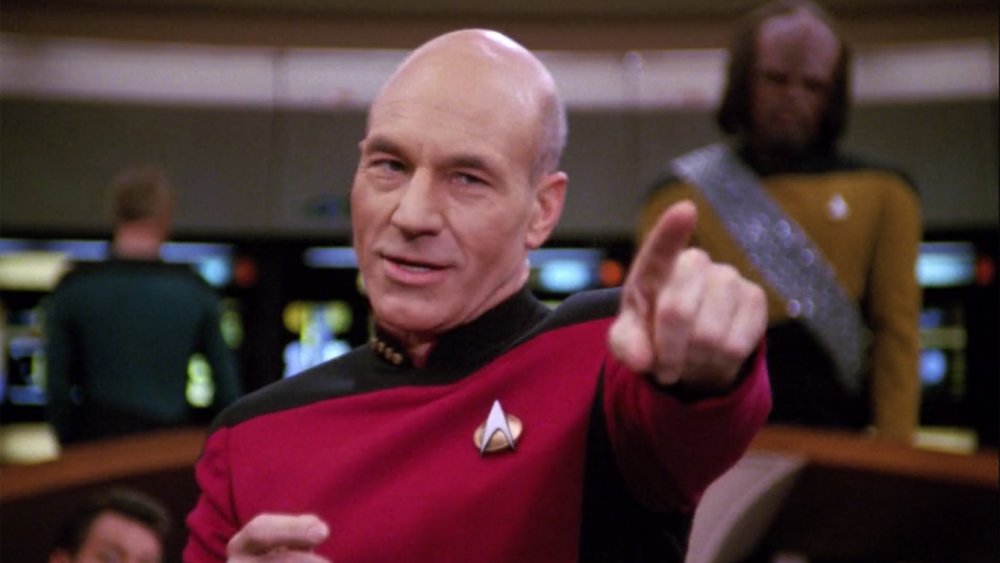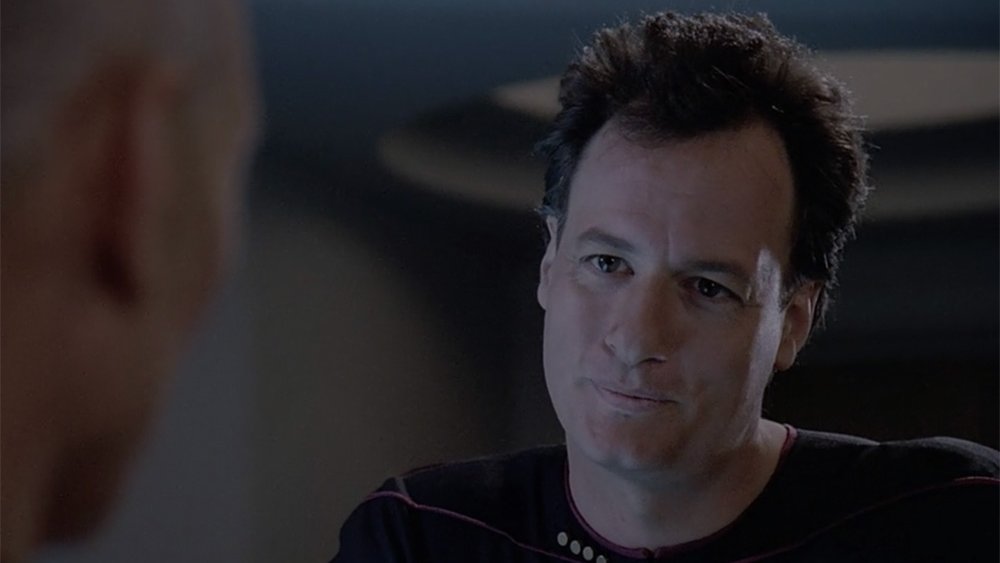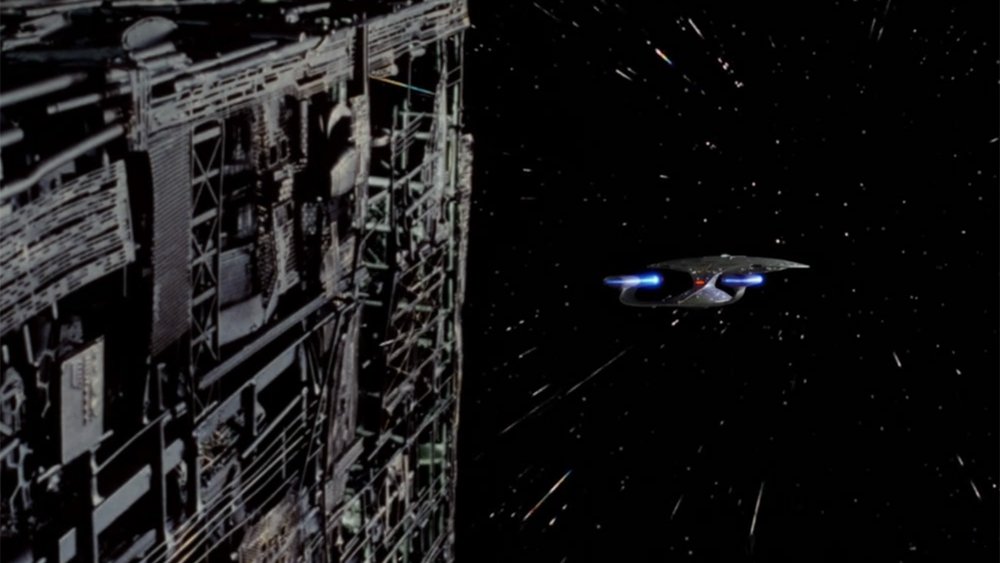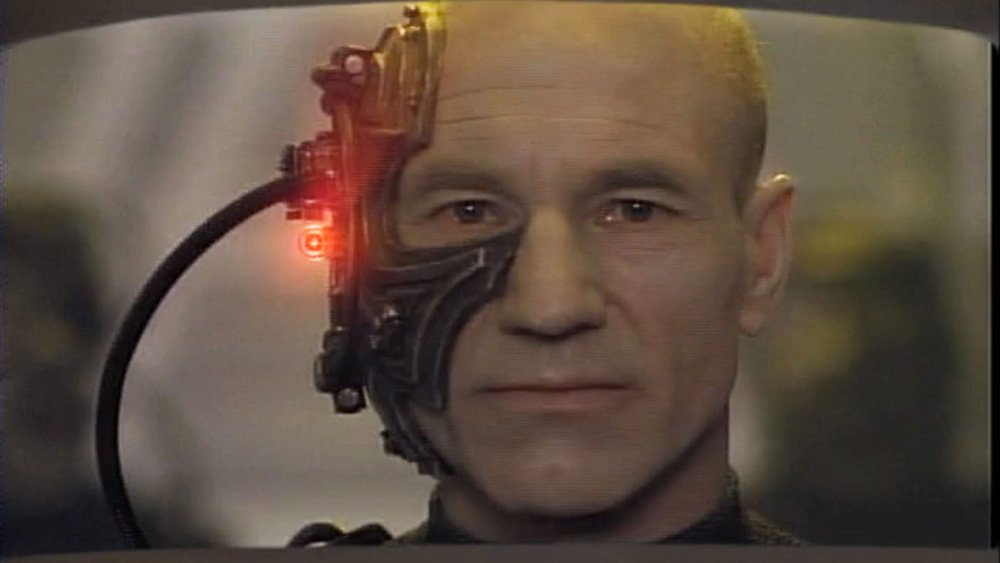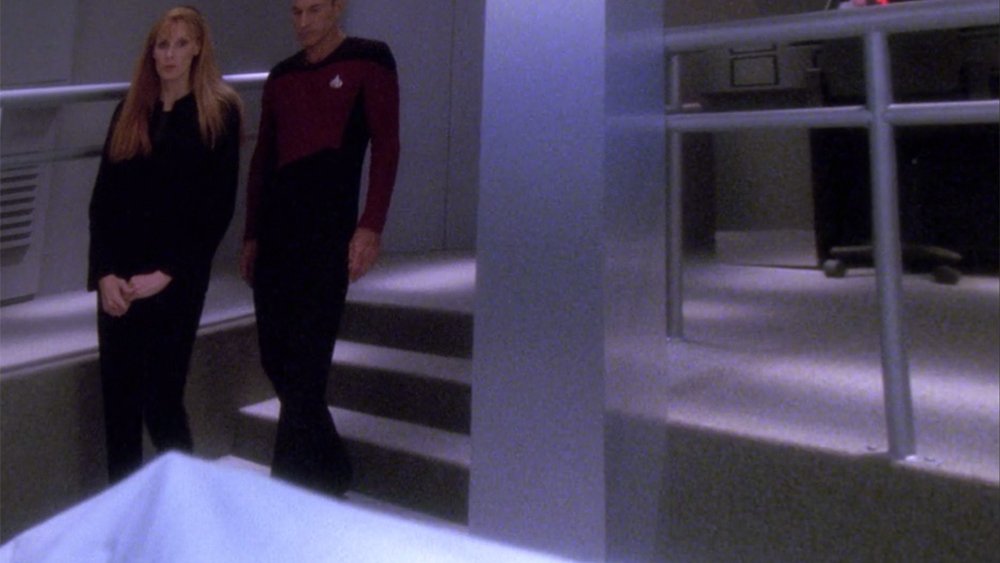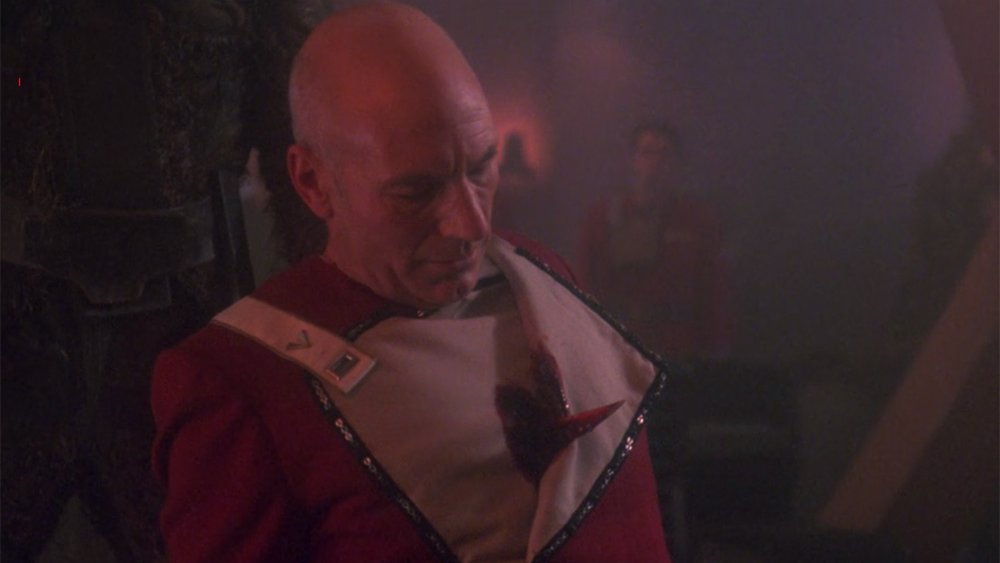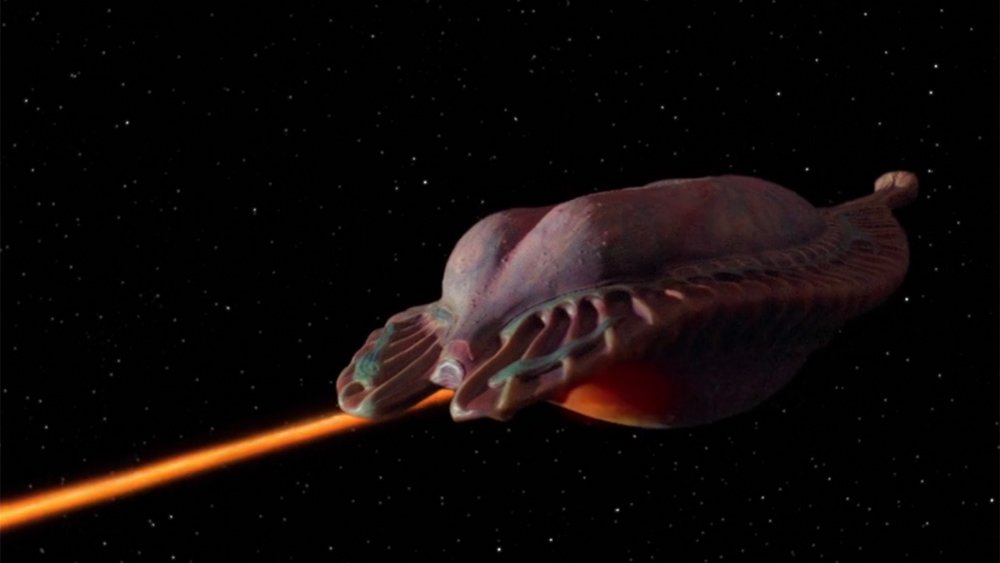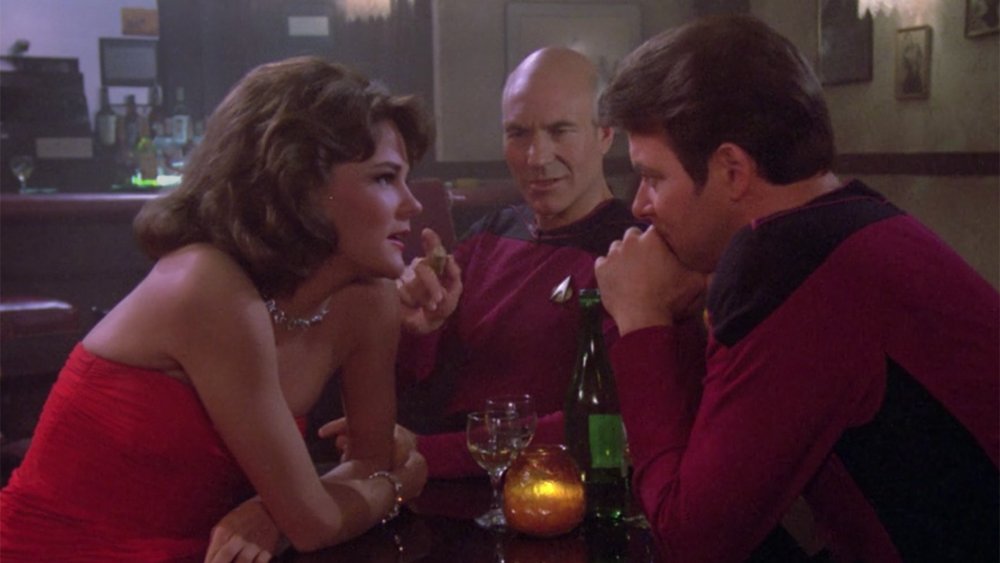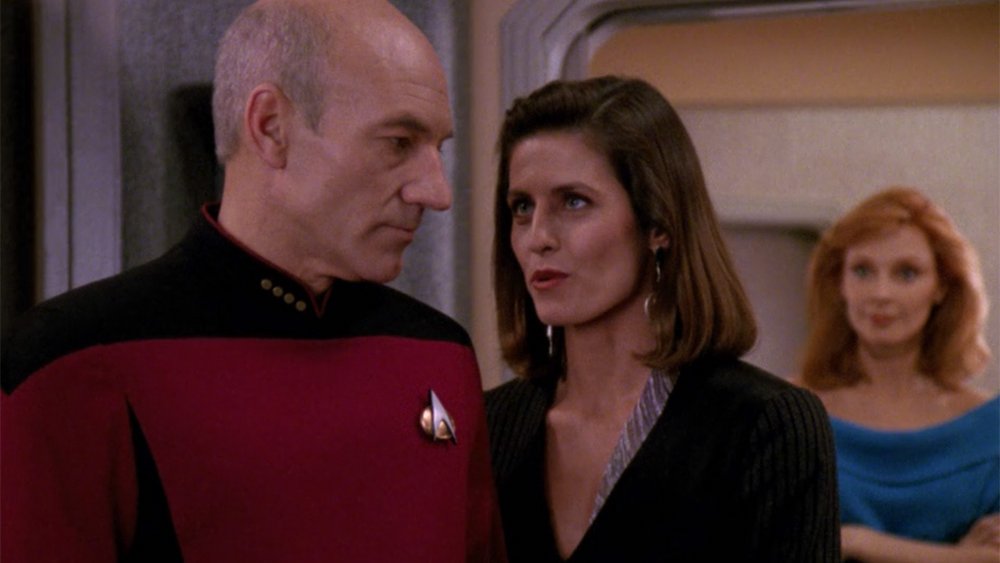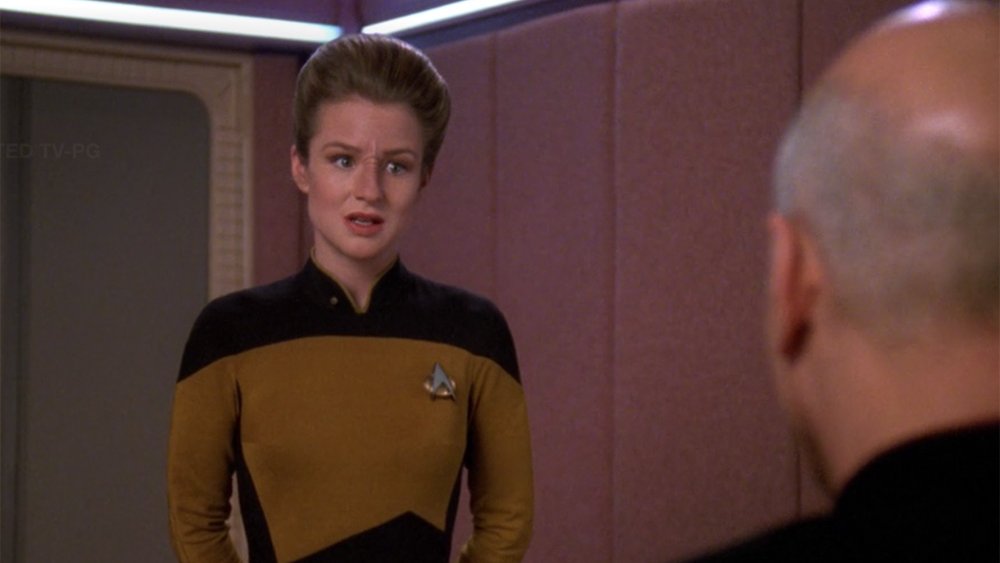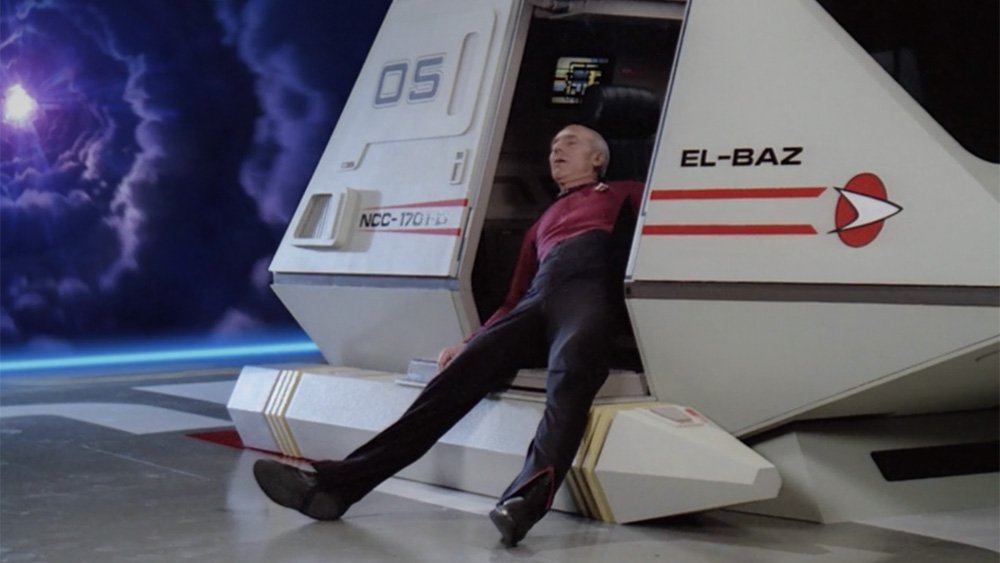The Worst Things Captain Picard Has Ever Done
Captain Jean-Luc Picard of Star Trek and the U.S.S. Enterprise fame is arguably the single greatest captain in the history of Starfleet. Say what you will about Captain James T. Kirk being a more dynamic character, but on Star Trek: The Next Generation, JLP had to match wits with godlike beings, stand against a swarm of cybernetic death-drones, and even free a planet from the grips of the devil herself.
Even in Star Trek, though, you don't get to the top of Starfleet without getting your hands at least a little bit dirty, and Picard is no angelic exception. He's made mistakes that have lost him ships and crew members, even ones not wearing red shirts, and he's put countless lives in danger because he couldn't keep his temper in check. From lying and cheating to breaking hearts and maybe just straight-up manslaughtering his best friend, here's the worst stuff that Star Trek's Captain Picard has ever done.
Captain Picard rejected Starfleet's most qualified applicant... ever
Let's go ahead and start with what is arguably the single worst thing Jean-Luc Picard has ever done — and believe us, it's not the one you're thinking of. Early in the series, something happens that, if it had gone a different way, could've changed virtually everything about the events of the series and saved countless lives, both within the Federation and across the galaxy. Instead, when he's presented with an opportunity to do good on a truly cosmic scale, Picard lets his temper get the best of him and throws it all in the trash, dooming a huge portion of the galaxy in the process. We're talking, of course, about his rejection of Q's offer to join the crew of the Enterprise in Season 2's "Q Who."
In case you've forgotten, calling Q "godlike" would actually be an understatement. Reality itself is subject to his every whim. He can create life with a snap of his fingers, he can fling a starship across the galaxy faster than any warp drive could even hope to, and he can even alter the timeline without breaking a sweat. And yet, when he asks Picard for permission to join the crew, JLP gives it about fourteen seconds' worth of thought before rejecting him outright. And the worst part? He even admits that letting Q join up would actually be in keeping with what he's supposed to be doing on his continuing mission. To quote the man himself, "Starfleet was founded to seek out new life, well there it sits!" He says that seven episodes before this one! What a difference two months make.
But no, Q and all his infinite power are rejected from the Federation by one grumpy captain because of the gut feeling of "I don't trust you." Speak for yourself, Jean-Luc. You're the guy who rejected the reality-warping cosmic deity, but let Wesley Crusher fly the flagship of the Federation because he was better at it than the average teenager. If there's anyone we don't trust, it should probably be you.
Captain Picard brought the Borg to the Alpha Quadrant
The worst part about Picard's rejection of Q's request to join the Federation isn't the lost potential of what Q might've done if he'd been allowed to serve. No, the worst part is what Q actually did. After Picard's smarmy rejection, Q decides to prove that Picard needs him, so he chucks the Enterprise into the far-off Delta Quadrant and introduces them to the Borg. This, as you may already know, does not work out well for the Federation in general, or for Picard in particular.
Admittedly, you can't blame this one entirely — or even mostly — on Picard. First contact with the Borg, and all the genocidal suffering that follows from it as they turn their attention to the Federation and start creeping towards the Alpha Quadrant, is definitely the result of Q's actions, even if it never seems to come up in the rest of Picard and Q's playfully antagonistic relationship. Still, if Picard hadn't provoked him, if he had admitted from the start that he might not be completely prepared for exploring the unknown depths of space and all its hidden dangers, Q wouldn't have felt the need to prove how woefully incorrect he was.
So yeah, that part is all Q. You know what was definitely Picard's choice, though? Hanging out in System J-25 and poking around to see what nightmarish hive-mind monsters he could find instead of turning around immediately. Sure, it would've taken them two years at maximum warp to get to the nearest Starbase, but given that the alternative was mass-murdering time-traveling cyber-cubes, it probably would've been worth the trip.
The war crimes of Locutus
Given that he's the one who led them to the Federation to begin with, it's actually appropriate — if more than a little harrowing — that Captain Picard was the figurehead of their most devastating attacks.
In the two-part finale and premiere, respectively, of seasons 3 and 4, "The Best of Both Worlds," Picard is taken by the Borg and assimilated into the collective, emerging as Locutus. As his name implies — it's Latin for "he who has spoken" — Locutus was meant to serve as the single face of the larger collective, giving the Borg's more individualistic prey a single leader that they would, in theory, be more likely to relate to and obey. The trick, of course, is that while he appeared to be the one demanding surrender and, you know, giving the order to kill Benjamin Sisko's wife, Locutus was still controlled entirely by the collective.
As a result, this is another one that seems like it's not really Picard's fault — he quite literally was not in control at the time, an unwilling passenger who was forced to watch while his own body did all these horrible things. Really, he's the victim here, not the perpetrator, although there are a couple of things that are at least a little more on him. First is the fact that Locutus and his attack on the Federation are broadcast across the galaxy, meaning that pretty much everyone alive saw him do it. If you're the not-so-friendly spokesman for galactic genocide, maybe take some time and let things cool off. Picard takes one episode where he goes to France for a fistfight with his brother. Even worse? He initially refuses to acknowledge the horrific trauma that he's been through.
Captain Picard was a Crusher crusher
The best ship on Star Trek is, of course, the Enterprise. The best 'ship, however, is absolutely Captain Picard's romance with Beverly Crusher. Sure, Riker and Troi might have the on-screen drama and O'Brien and Keiko have the sugar-sweet romance nailed down, but Picrusher has that long-simmering slow burn that gets its hooks into readers, and is even a crucial plot point in the series finale. The road to get there, however, was a pretty rough one, partially because Picard kinda-sorta got Bev's husband killed.
Back before he took command of the Enterprise, Picard was the captain of the Stargazer, and Lt. Commander Jack Crusher, Beverly's husband, was both a member of his crew and his "best friend." Unfortunately, Picard was in love with Beverly, but he kept a lid on his feelings ... maybe. See, Jack was killed while serving on the Stargazer, and his death is usually referred to as an "accident," but in Season 1's "Coming of Age," it's revealed that Jack's fate involved Captain Picard having to make some kind of choice about who lived and who died. How odd, then, that he chose to off his best pal to die. Surely the fact that the woman he'd been silently in love with for years would suddenly be conviently single couldn't possibly have had anything to do with it.
It could've been weirder, though. If you go back and watch the pilot, the way the characters interact seems to indicate that Picard was originally intended to be Wesley's father. Sure, that might be reading a whole lot into a few very intense looks between Wil Wheaton and Patrick Stewart, but the subtext is there. If that was the case, though, it was dropped, likely due to Gene Roddenberry's insistence that by the 24th century, our society would've evolved beyond things like interpersonal conflict.
Captain Picard cheated at Dom-jot
So far we've been dealing mostly with hypotheticals, or terrible events that Picard was caught up in due to circumstances partially beyond his control. There's one inarguable sin that's all on Jean-Luc's command-red shoulders, though: that dude is a damn dirty cheater.
Or at least he was back in the day. In "Tapestry," the episode where Q famously allows Picard to relive his younger days in order to avoid an early death, we get a very different picture of Picard than we might expect from the somewhat stuffy intellectual captain. He was a cocky, brash, troublemaking ladies' man who broke hearts and rules in equal measure. He was such a rule-breaker, in fact, that after he and his friend Corey — and you can tell he's a young delinquent because who else is named "Corey" — once cheated their way right into getting stabbed. It happened after they were hustled by a couple of Nausicaans at the game of Dom-jot, which is basically billiards but with even more math. To get revenge, they rigged the table, which isn't exactly the behavior you'd expect from a guy who once said that "the first duty of every Starfleet officer is to the truth."
Needless to say, it didn't work out as planned. While Picard was only an accessory to the table-rigging, he was all-in for the bar fight and wound up taking a dagger to the heart. Fortunately, that wasn't quite as fatal as it is here in the 20th century. What's really interesting, however, is that if he hadn't done the cheating (and gotten stabbed), he would've wound up in the Starfleet equivalent of a dead-end job, with zero heroics to his name. Being a dirty lying cheat is an intrinsic part of who he is as a person.
Captain Picard vaporized Junior's mom
Starfleet's primary mission, stated at the top of of every single episode of both the original series and The Next Generation, is to seek out new life and new civilizations. Presumably, there's also something in there about what you should do when you find them, and it's hard to believe that "immediately destroy a unique new life form with phasers" is part of it.
Someone probably should've told Captain Picard that before "Galaxy's Child" from Season 4, where that's exactly what happens. The Enterprise encounters a strange new spacefaring creature, and after it attempts to defend itself from what it probably saw as a gigantic metal predator, Picard gives the order to fire on it, and is then very surprised that it dies. Sure, he uses the lowest setting, but these aren't the little dustbusters that the crew carries around. These are the ship's phasers. Even at minimum power, these are the guns they use to fight the Borg and the Romulans. Using the smallest gun on a naval destroyer to shoot a whale that's hassling you is still not going to end up being pretty, so what exactly did he expect?
The worst part? It turns out that the lifeform was a mom, and that it was attacking the Enterprise to defend its child. Basically, Captain Picard killed Bambi's mom ... in spaaaaaace!
Captain Picard's holo pursuits
When you think about the crew members on the Enterprise who are most likely to be goofing off in the holodeck when they ought to be doing their jobs, it's a short but very definite list. There's Lieutenant Barclay (who once got addicted to his own interactive erotic friend fiction), Geordi LaForge (who once fell in love with a dating sim he made while trying to fix the warp drive), and Big Willy Riker himself (who doesn't have any canonical holodeck problems, but you just know he gets real nasty in there). Captain Picard, though? His fixation on noir LARPing might be weird, but he'd never get so distracted by a sexy video game that he'd, say, ignore the potential destruction of the Enterprise, right?
Except, you know, for that time that he actually did. While most Trek fans probably just remember Riker totally falling for Minuet, a holodeck program that made such a strong impression that he was still into her a few years later, it's worth remembering that Picard was in there with him. Also? While Minuet had to use all the seductive power of the holodeck to keep RIker distracted, all she had to do to hook Picard was say two sentences in French. As soon as she mentioned Paris, Picard was ready to chill out and get wine drunk on a Tuesday afternoon instead of, say, captaining the ship.
Under normal circumstances, that wouldn't be so bad. Picard's only human, after all, and we've all gotten caught up in Assassin's Creed and stayed up way too late now and then. Picard, however, managed to get so distracted that he completely missed an order to abandon the ship because it was about to be exploded by antimatter.
Captain Picard kept Vash a secret
One of The Next Generation's most underused characters was Vash, the shady, sexy archaeologist who answered the question of what would happen if Han Solo and Indiana Jones got together and raised a daughter who followed in their footsteps. In contrast to the straitlaced squares of the Federation, Vash was a swashbuckling rogue whose relationship with Picard had more than its share of sparks. Sadly, she only has two appearances on TNG, plus a single, incredibly depressing follow-up on Deep Space Nine.
Even sadder? Despite an undeniable affection for her, Captain Picard never tells any of his friends about her after her first appearance. That's a red flag to begin with — which in Star Trek terms is probably still preferable to a red shirt — and when she shows up again, she's clearly hurt by the fact that Picard seems ashamed of his relationship with her. Then, in one final twist of the knife, Picard ends that second appearance by being so desperate to get rid of her that he hands her off to Q, the same guy that he said he didn't trust to do the job he gave to a teenager.
Surprise, surprise: it goes badly. That depressing DS9 episode where Vash comes back for one final time? The whole thing turns into an allegory for abusive relationships, with Vash trying to break free of Q and Q responding by straight up torturing her with a plague right there on the promenade. Great job keeping your "friend" safe on that one, Jean-Luc.
Scathing Sito
Since we only really see him interacting with the bridge crew, it's easy to think of Picard as a sort of affable space dad who's always there to encourage Wesley Crusher or pitch in to help Worf deal with the rest of the Klingon Empire. In "Lower Decks," though, we get to see him in full chastisement mode as he berates Ensign Sito Jaxa about her part in a cadet's death and cover-up back in the academy.
It's not the first time Picard has yelled at a younger officer — in fact, it's not the first time he yelled at someone for this specific incident, since Wesley's part in it was what got him the big "first duty" speech a couple of years earlier. This time, however, he lays into Sito, telling her that she doesn't deserve to be part of his crew. It's brutal, but hey! At least he was just pretending to be hugely disappointed in her as a test! That makes it better! Of course, it didn't seem to help her when Picard sent her on an extremely dangerous mission where she immediately died, but it's the thought that counts, right?
Captain Picard's time travel suicide by phaser
All right: we've been through the cosmically destructive decisions, the petty crimes, and the just plain rude. Now, in true TNG fashion, it's time to get weird and throw some time travel in the mix.
Even by the standards of Star Trek episodes about time loops, "Time Squared" is a weird one. It starts when the Enterprise finds Picard from six hours into the future, delirious and impaired from his trip through time and a mysterious event that destroyed his version of the Enterprise. As the next six hours go by, Picard 2 improves to the point of re-enacting what he did before, trying once again to lure a mysterious vortex away from the ship. The thing is, Picard 1 knows that's not going to work, and that it could lead to the destruction of the Enterprise and another trip through the time loop, so he has to put a stop to it.
Which he does, by picking up a phaser and shooting his own time-tossed double, killing him right there in the shuttle bay. It all worked out in the end, but still. Violently murdering yourself, even for the best possible reason, is ... well, if it's not a truly terrible act, it's certainly a weird one. And for Picard, that's saying something.
